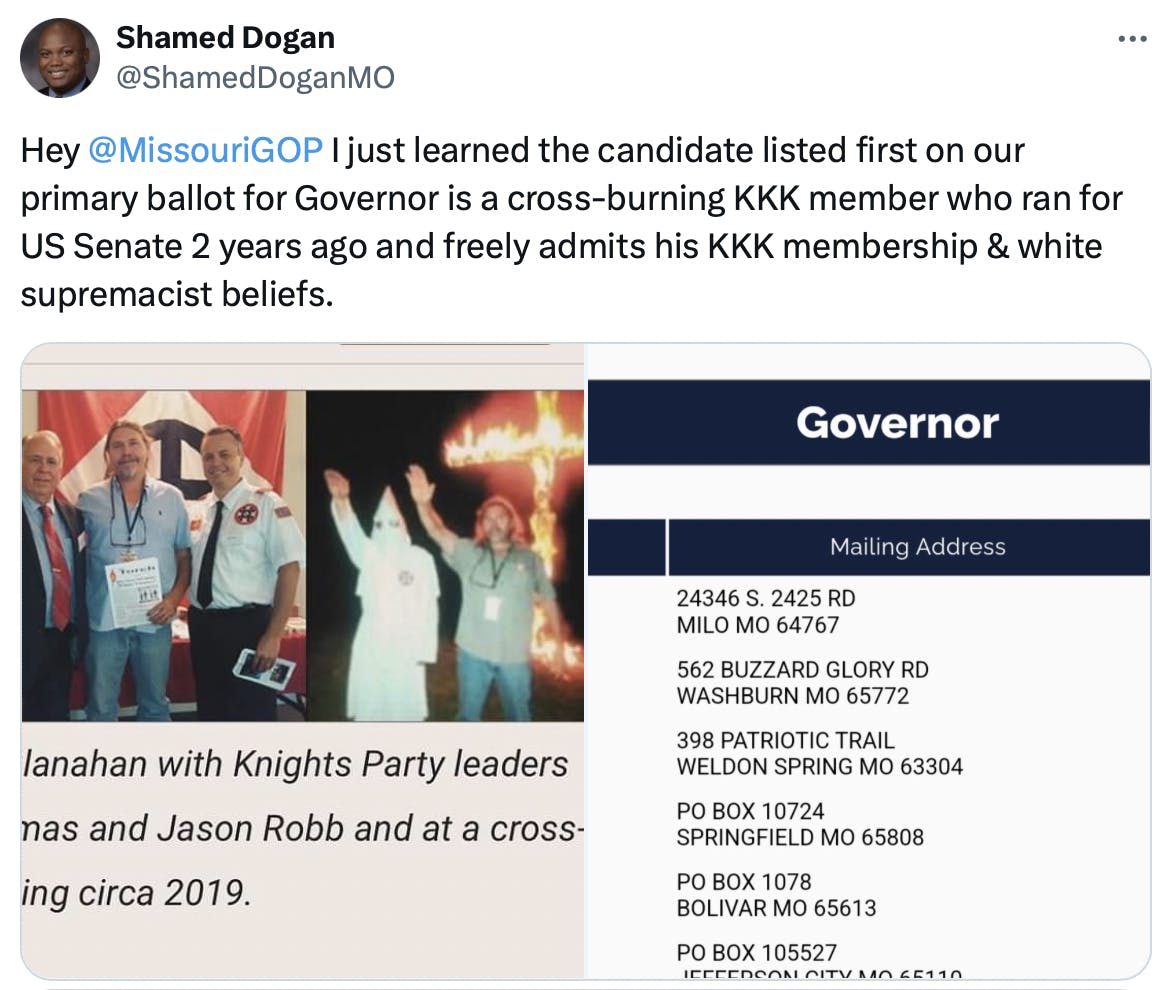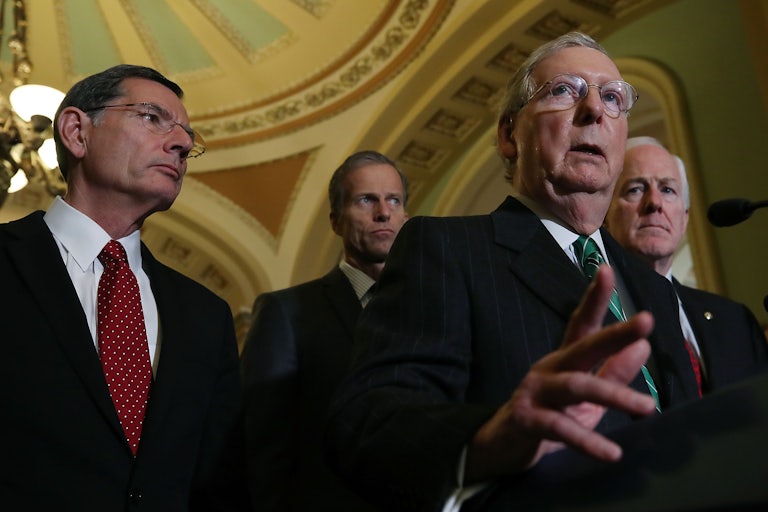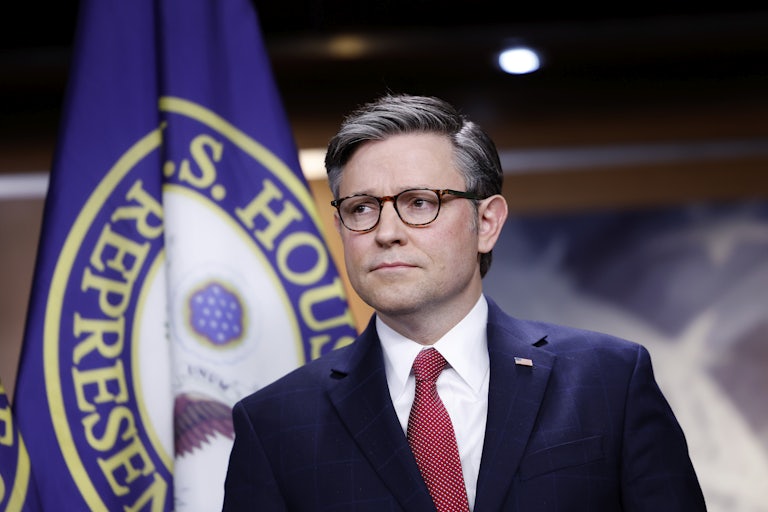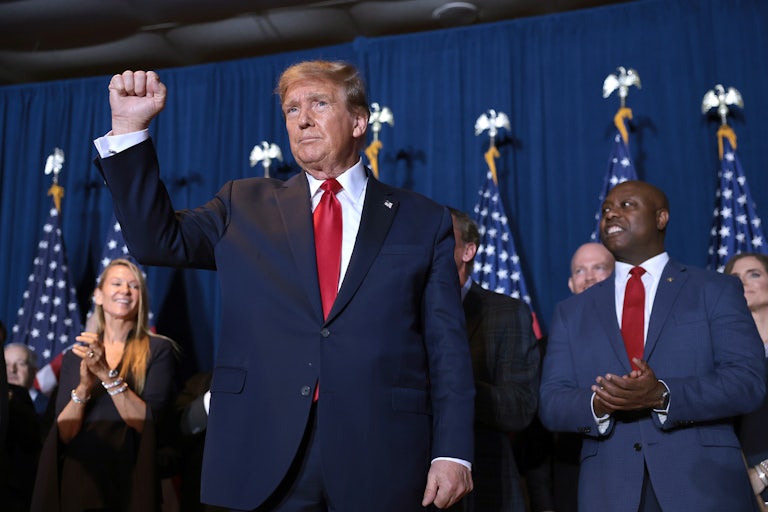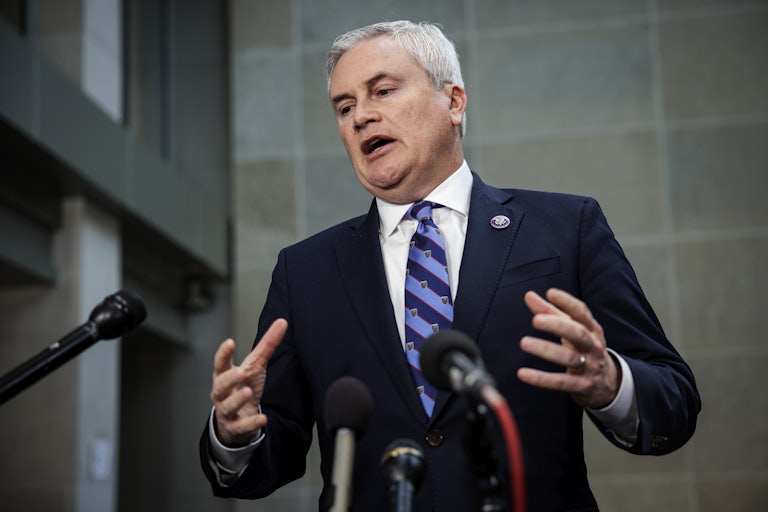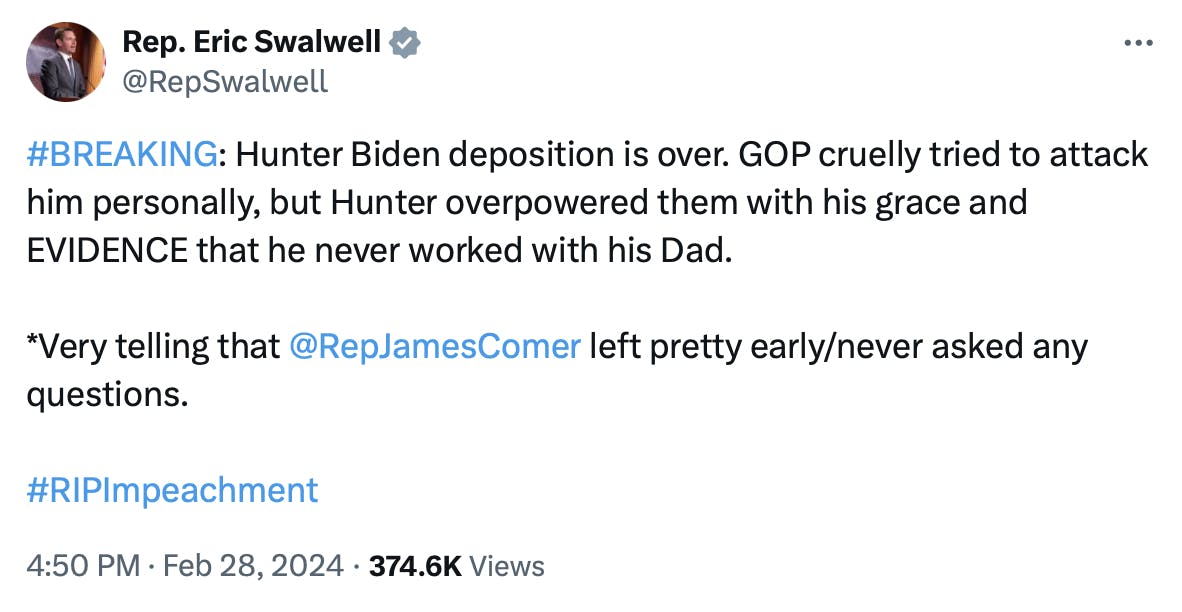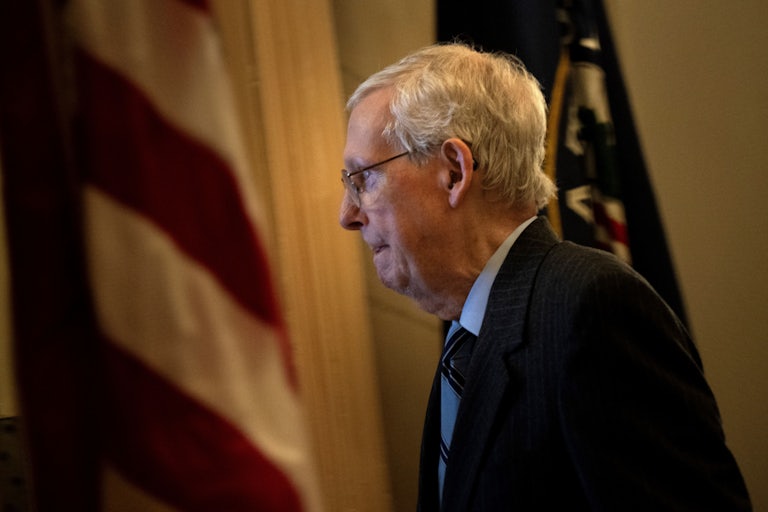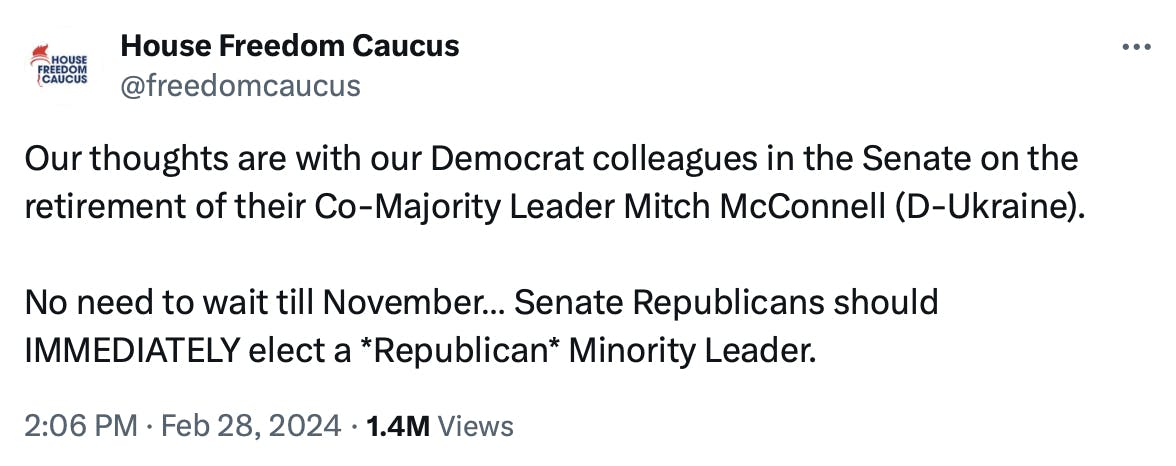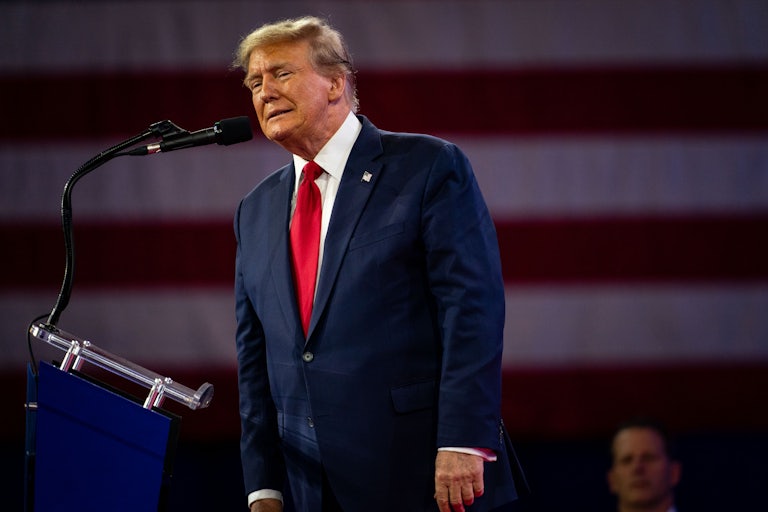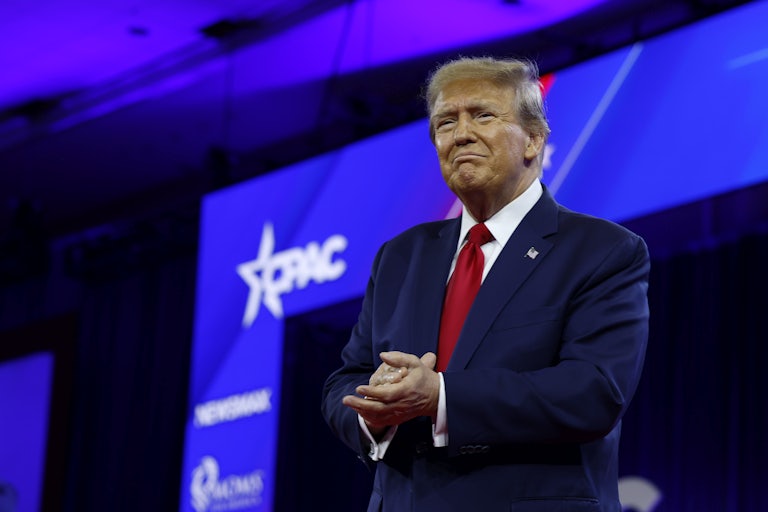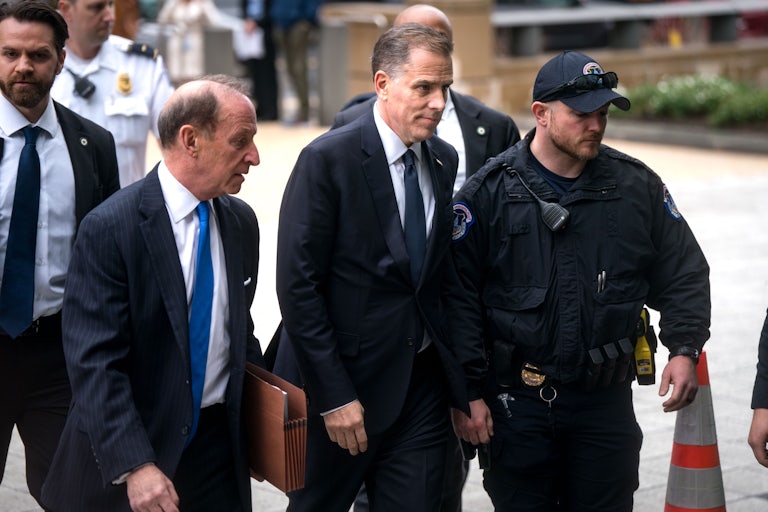Lauren Boebert Has Another Weird Sex Scandal in the Family
More details are emerging about Tyler Boebert’s arrest for a crime spree.

The story around Tyler Boebert’s arrest just keeps getting worse.
Representative Lauren Boebert’s 18-year-old son allegedly made a sex tape with a minor, according to an affidavit following his arrest on Tuesday.
The younger Boebert was arrested over “a recent string of vehicle trespass and property thefts” in Rifle, a town in Colorado’s 3rd congressional district, which his mom currently represents, said police. He is facing 22 charges, including criminal possession of a financial device and criminal possession of ID documents.
But if that wasn’t bad enough, an arrest affidavit released by the Garfield County Clerk of Court noted Tyler “supposedly made a sex tape with” one of the other suspects, a female minor. That tape was reportedly sent around to people they knew. It’s not clear from the affidavit how old Boebert or the suspect were at the time they did so.
The four suspects involved are reportedly two female minors, one male minor, and the 18-year-old Boebert.
The affidavit also sheds more light on how exactly the four friends were caught. The investigation reportedly began on February 20, when a woman informed police that someone broke into her parked car and took her wallet the day before. The wallet contained a stolen card that was then used at various locations on February 19 and 20.
Police say that Tyler and his friends were out to steal people’s wallets and credit cards in order to use them for purchases. One of the victims included a woman with a brain tumor who said she had just $75 “left to her name,” according to police.
And how were they caught? Surveillance footage from one of the stores the cohort stopped at reveals Tyler wearing a gray “Shooters Grill” hoodie—the name of his mother’s former restaurant in Rifle, Colorado.
Lauren Boebert, for her part, said in a statement that her son “will take responsibility for his actions and should be held accountable for poor decisions just like any other citizen.”
“I love my son Tyler, who has been through some very difficult, public challenges for a young man, and the subject of attention that he didn’t ask for,” she said. “It breaks my heart to see my child struggling and, in this situation, especially when he has been provided multiple opportunities to get his life on track. I will never give up on him and I will continue to be there for him.”
Still, it’s a rough spot to be in for the Colorado representative who likes to rail about the “Biden crime family” every chance she gets. She’s already facing a tough congressional bid this primary season. Beobert chose late last year to move to and run in Colorado’s 4th congressional district, a much more right-leaning seat and thus one that should theoretically be an easier election win for her. That decision followed a rather embarrassing national spectacle when she and a date were caught on security cameras groping each other, vaping, and eventually getting kicked out of a performance of Beetlejuice.
Unfortunately, things still aren’t looking good for Boebert. During a campaign event earlier this month, Republicans weren’t impressed.
“I don’t appreciate, as a Christian, people saying they’re Christian to get your vote and then turning out to be a lowlife, and now I just kind of think of her as a lowlife,” one voter told The Wall Street Journal.

